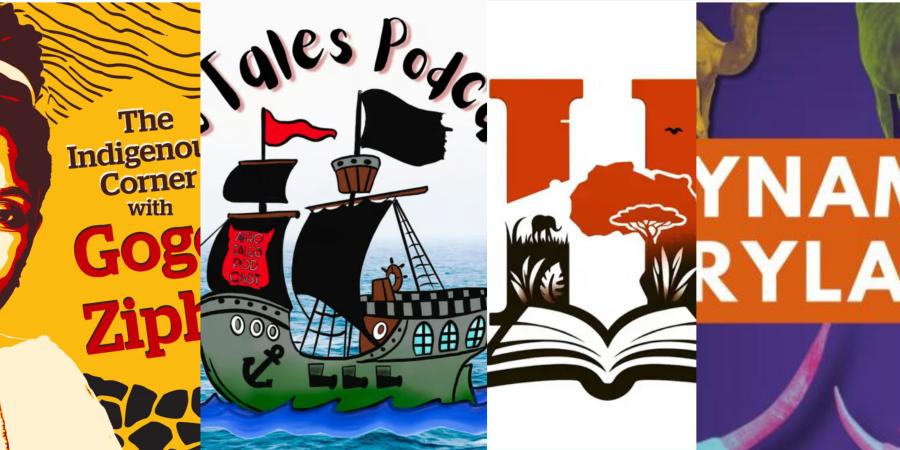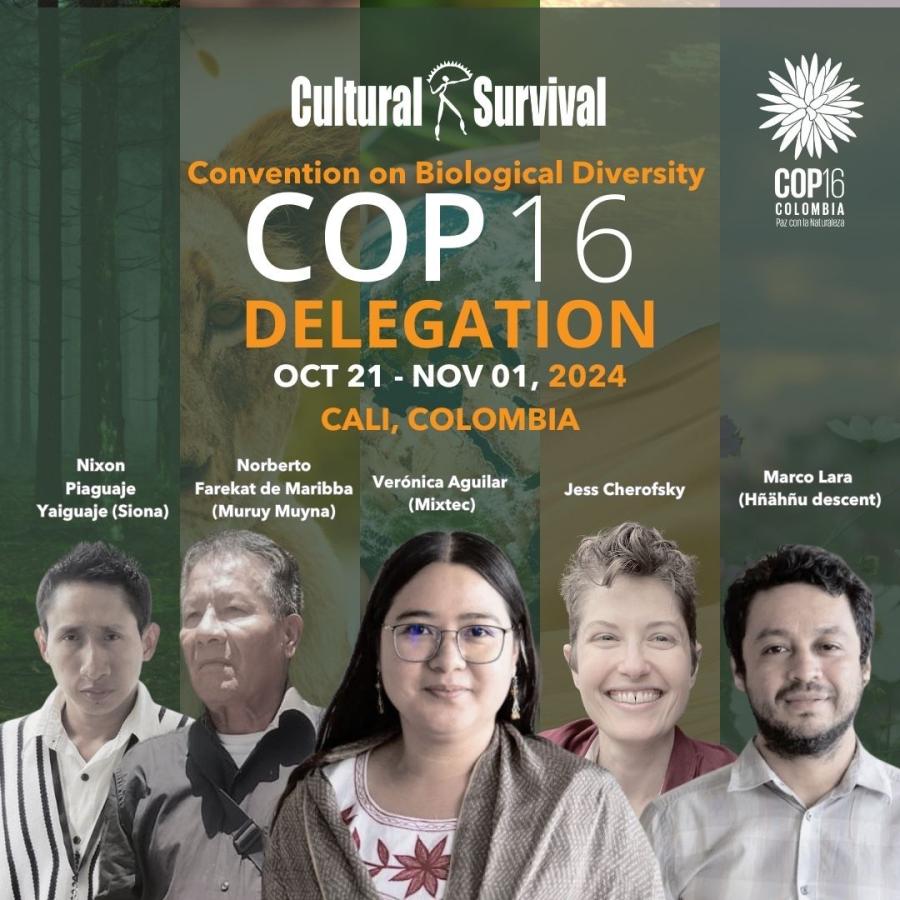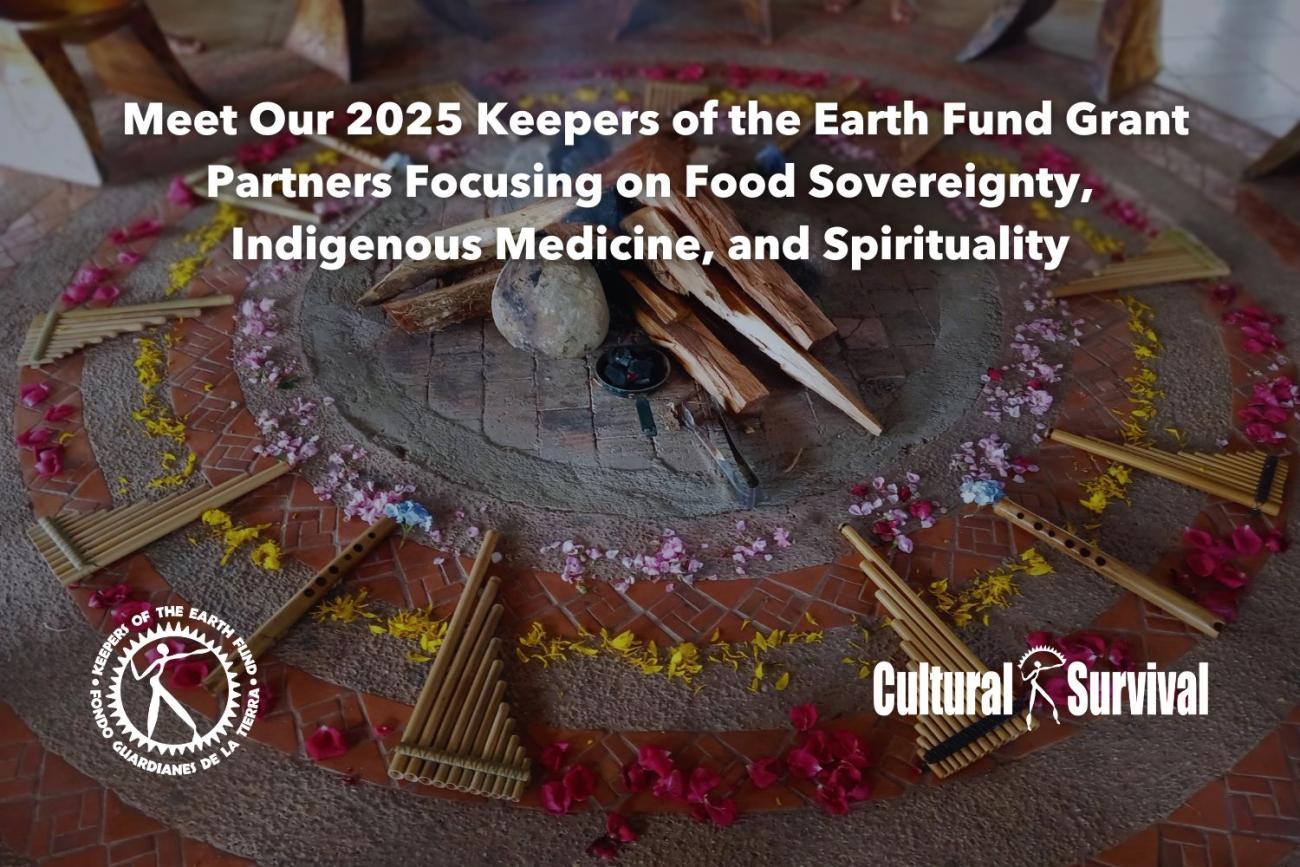
The Keepers of the Earth Fund (KOEF) is proud to announce our 2025 partnerships with Indigenous communities. At Cultural Survival, we value cultivating long-term relationships with our partners.
The Keepers of the Earth Fund is an Indigenous-led fund at Cultural Survival designed to strengthen Indigenous Peoples' advocacy and community development projects globally. Since 2017, we have supported 440 projects in 42 countries through small grants and a wrap-around approach totaling $2,667,147. Grants go directly to Indigenous communities, collectives, organizations, and traditional governments to support projects they designed and in accordance with their Indigenous values. Predicated on the United Nations Declaration on the Rights of Indigenous Peoples, Cultural Survival uses a rights-based approach in our grantmaking strategies to support grassroots Indigenous solutions through the equitable distribution of resources to Indigenous communities.
In 2026, our ninth year of operations, we supported 65 Indigenous projects and collectives for a total amount of $531,000. The funds were sent directly to Indigenous communities, collectives, and grassroots organizations in 26 countries.
Meet our grant partners working to secure subsistence and food sovereignty based on Indigenous Knowledge and those protecting Indigenous medicine and spirituality.
Securing Subsistence and Food Sovereignty Based on Indigenous Knowledge
Many Indigenous Peoples still maintain food systems linked to respect and reciprocity with the land, water, plants, fruits, and animals. Food is vitally important to the economies and livelihoods of Indigenous Peoples around the world. The projects on this list address community food, with objectives such as nourishing the body, continuing their people's way of life, preserving their knowledge, and promoting food sovereignty. Also included are projects related to economic strengthening through planting, fishing, and art.
AMEN, Association for the Mobilization and Support of the Needy, Batwa Banyindu (Democratic Republic of Congo)
Founded in 2005, AMEN is an Indigenous women-led organization serving the Batwa Banyindu Peoples in South Kivu, Maniema, and Tanganyika provinces. Facing threats from armed conflicts since 1996, Chinese mechanized mining operations, and territorial encroachment that has reduced their ancestral lands from over 11,000 km² to less than 1,000 km², the community suffers from deforestation, pollution, biodiversity loss, and food insecurity. Their project "Self-determination and Food Sovereignty between Armed Violence and Technological Violence" aims to preserve traditional wild and natural food systems by conducting food inventories, seasonal monitoring of traditional food sources, and organizing food fairs that showcase Indigenous culinary practices, directly benefiting community members while strengthening their food sovereignty against imported food dependency and diseases.

Association of Remnants of Quilombo Rio dos Macacos, Quilombola (Brazil)
The project aims to build a community flour mill and cassava garden at this community in Bahia. The headquarters for the organization will be installed, where they can coordinate political activities and develop new initiatives. The main objective is to ensure food security for the community while promoting economic autonomy and strengthening their culture and ancestral heritage. The project is a continuation of a first phase in which the mill equipment was purchased.
Sarrapia Community of the Piaroa Indigenous Peoples, Piaroa (Colombia)
The project aims to guarantee the commercialization of the agricultural products produced by this community in the Mataven forest, in other places at the lowest possible cost. This way they expect to guarantee self-sustainability and improve their living conditions. The project involves the purchase of river transport equipment for cargo and passengers.
Mubasen, Khomani San (South Africa)
As a way to ensure intergenerational transfer of knowledge, the Mubasen collective will work on farming, animal husbandry, and tannery in Andriesvale and Upington. Their objective is to produce sustainable vegetables and KhoeSan medicinal plants, as well as transfer knowledge about how to keep goats and sheep, from the elders to the youth and children, therefore ensuring that the knowledge of ancient healing, farming, housing, tannery, arts, and crafts will be passed down or carry on to the next generations.
Nvn-nes-’a Land Trust, Siletz (USA)
Composed by Siletz tribal members (Oregon) in a previous KOEF-funded project they built a fish house for the community at a traditional fishing site. For this current project, they will build on the previous success by directly supporting community members with fishing gear and food processing equipment, and supporting their travel to encourage more fishing at the site, as well as gathering of other traditional foods such as seaweed and mussels.
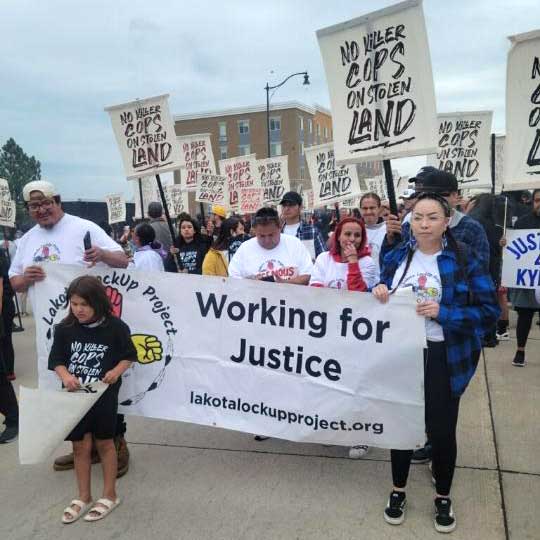
Lakota LockUp Project, Lakota (United States)
The project is a follow up to a previous work, funded by KOEF. It aims to continue supporting Indigenous people who are imprisoned at the state prison of South Dakota, this time by buying their art products and reselling them through identified markets. They will start planning an Indigenous food preparation training center. The project also includes meetings with the Indigenous prisoners to better understand their needs regarding cultural and mental health.
Painted Horse Recovery’s Food Program, (United States)
Cultural Survival supported improved provision of traditional food at Painted Horse Recovery, an organization that seeks to support Native American communities in Oregon to overcome addiction through culture and peer recovery support. The funds were also used to start a community garden at one of the centers, where native plants will be grown to continue providing nutritious and traditional foods to community members.
Indigenous Medicine and Spirituality
The following projects focus on the medicine and spirituality of Indigenous communities, which are so closely intertwined for Indigenous Peoples. This year's partners will strengthen the use of sacred spaces in their cultures, share traditional medicine knowledge with younger generations, and conduct communication projects that highlight the importance of this ancestral knowledge.
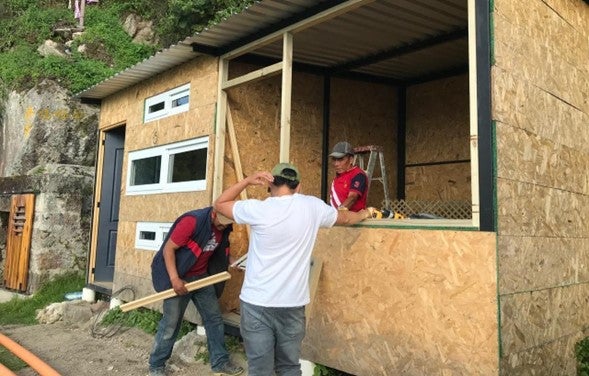
Asociación Colectivo Vida Digna, Maya (Guatemala)
The Asociación Colectivo Vida Digna (Dignified Life Collective Association) of Quetzaltenango is an Indigenous organization comprised of members from K'iche', Tz'utujil, Kaqchikel, Mam, Ixil, Q'eqchi, and Poqomchi Peoples. Their "Health and Maya Cosmovision" project aims to strengthen community health by establishing medicinal plant cultivation led by iyom (midwives) and youth, who will grow Pom trees for ceremonial use. The project will serve 800 people across communities in Quetzaltenango, Totonicapán, and surrounding areas, creating a sustainable cycle of traditional healing practices while generating economic resources for participating families.
Traditional Bantawa Kirat People's Association Nepal (TBKPAN), Bantawa (Nepal)
In the Bantawa community in Bhojpur District, the Traditional Bantawa Kirat People’s Association will implement a project aiming at revitalizing Indigenous water governance, reviving the endangered traditional practice of Sohon Sengma that involves worshipping water sources. The project will also include producing a short documentary and organizing a workshop on climate resilient practices and Indigenous Knowledge.
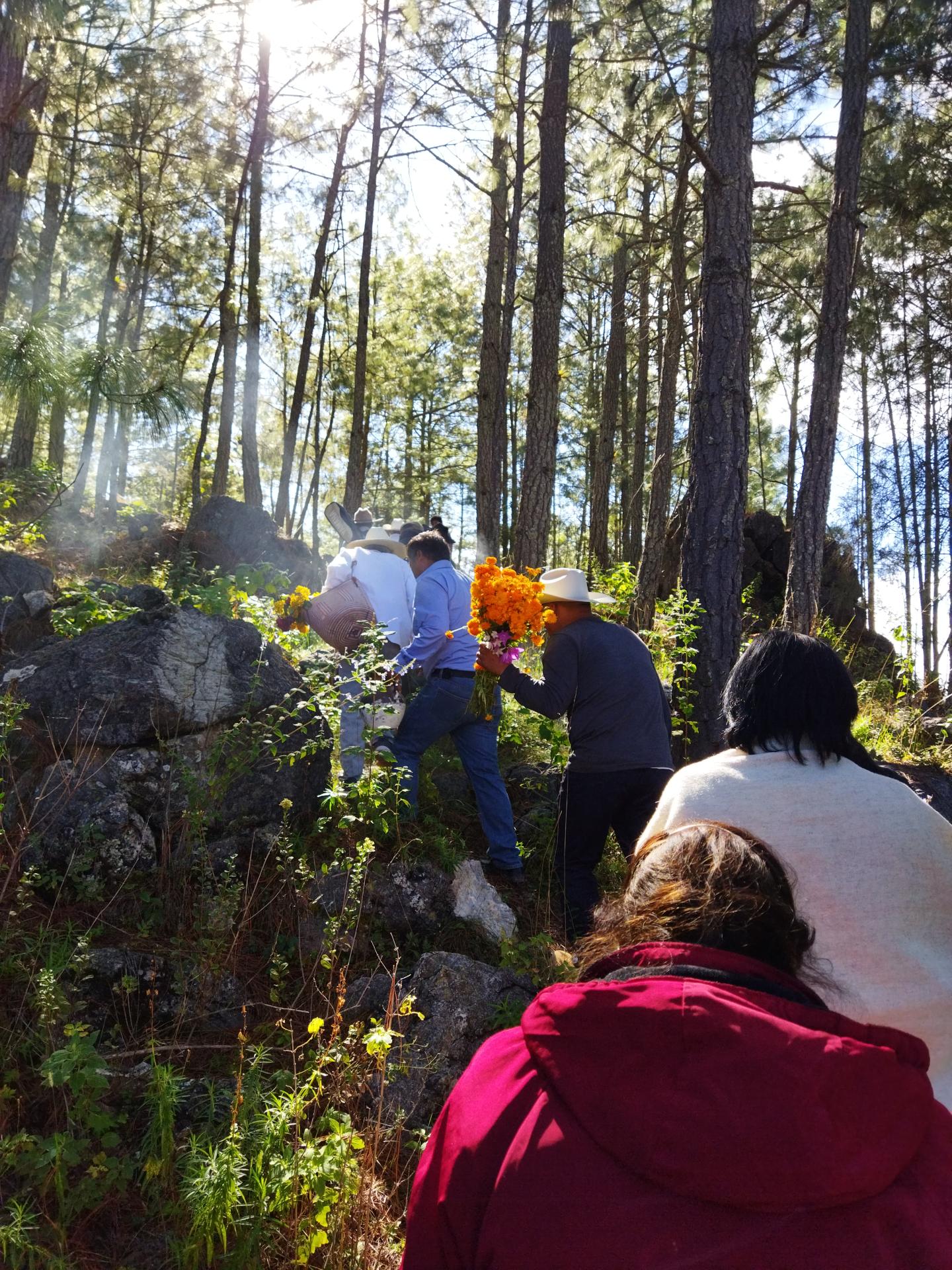
Yucunani Community, Mixtec (Mexico)
In a previous project supported by KOEF, the road and entrance to the Ve'e Savi rain house, a sacred site of the Mixtec people, were renovated, and a festival was held in honor of the request for rain to strengthen Mixtec spirituality for all ages. This year's project involves restoring another abandoned rain house in the same area. Work will also be done on the community's water distribution system as a complement to the spirituality associated with water and rain.
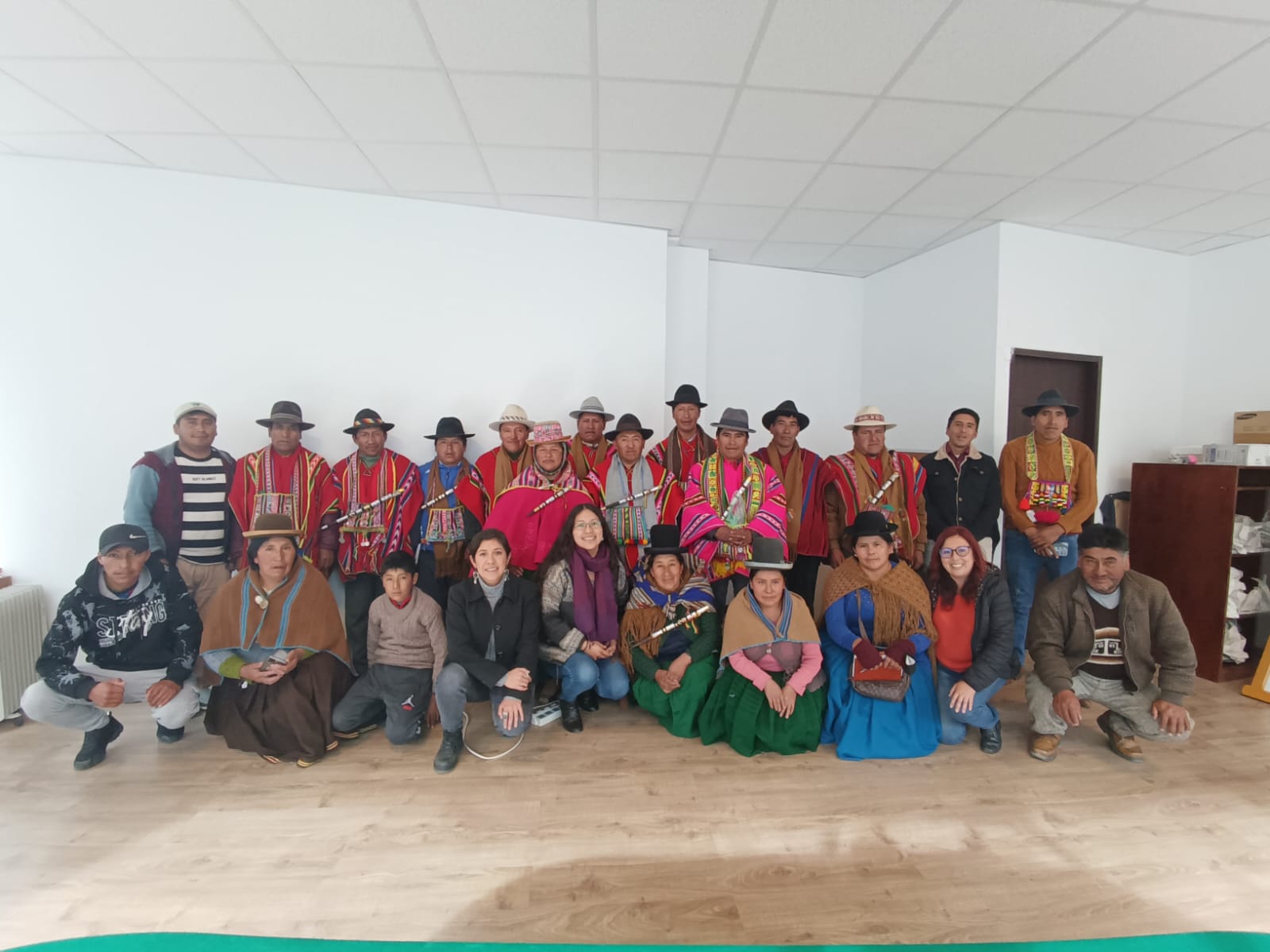
Marka Cololo Copacabana Antaquilla Puquina Nation (MACCANP), Puquina (Bolivia)
In a previous project supported by KOEF, the Marka systematized and collected information on traditional Puquina medicine for COVID-19 and other diseases. The result is a document that will now be published in book form and disseminated throughout the four markas of the Puquina Nation through workshops and collaborative work with traditional healers to develop educational booklets.
